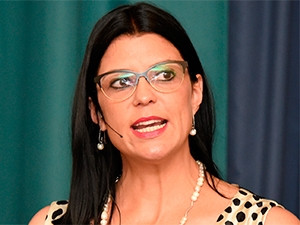
Vodacom has been ranked first out of SA's telecoms operators, according to the 2016 Ask Afrika Orange Index.
The market research house has been running the national customer service benchmark since 2001 and objectively ranks 33 industry sectors and 132 companies overall. It is based on a sample of 15 000 interviewees, that represents SA as a whole, and provides a view of the service performance of each company, as well as identifying service landscape changes.
Vodacom ranked first in the telecommunications industry category in 2016 and came in 21st place overall ? improving from 34 overall in 2015. Cell C was in second place followed by Telkom Mobile. MTN trailed its competition despite winning the telecommunication industry category in 2013, 2014 and 2015. Telkom's fixed-line business showed the second biggest increase in emotional satisfaction out of all the companies measured.
When comparing the 2016 index to 2015 scores, overall service levels have decreased slightly in SA. The company says service levels have gone down as brands are not mastering the balance between overall satisfaction and emotional satisfaction.
"Ask Afrika's service model talks strongly to humanness, and at the heart of humanness is emotion. Emotions are also critical to understanding how consumers make decisions and behave. By measuring emotion, we capture a more accurate response, undiluted by rationalisation. This helps us to fully comprehend why people think and act the way they do," explains Ask Afrika MD Sarina de Beer.
She says there is a relationship between emotions, attitudes, cognition, brand interest and purchase intent.
"Measuring emotion provides a deeper and more holistic understanding of consumer behaviour and highlights the emotional connections that consumers have with brands."
ISPs ride the wave
This year, there were considerable improvements in certain industries ? with companies within the telecommunications sector showing some of the biggest increases in service delivery scores. This was particularly true for Internet service providers (ISPs), which as an industry, had the fourth-biggest increase in index score in 2016.
Cell C came out as the leading ISP in 2016, at 68th overall compared to its 140th position in 2015. This jump was the fourth-biggest improvement of the Orange Index score out of all the companies measured.
Vodacom Internet secured second place in the ISP industry category and MWeb came in third. Telkom Internet gained the biggest increase in emotional satisfaction out of 132 companies measured, Cell C Internet had the third biggest increase in emotional satisfaction, and MTN Internet the fourth-biggest. Vodacom won the ISP industry category in 2015 and MWeb in 2014.
"Certain industries have greater opportunity for eliciting positive emotions, and telecommunications and ISPs are both within the top 12 in this regard," Ask Afrika says.
In terms of the call centre index, Cell C was overall winner in 2016. Vodacom came third for its call centre's service delivery, Telkom garnered seventh place, MWeb 13th place and MTN 14th position.
Emotional connection
Ask Afrika believes digitisation and technological advances are central to the telecoms and ISP industries, with consumers expecting to be connected 24/7 with technology, allowing for an immediate response to most queries.
"When the ultimate scarcity is time, responsiveness becomes the new currency. We live in the digital age of immediacy and on-demand. Customers want what they want, how they want it and when they want it. On top of that, they want life-enhancing experiences. If all this can be achieved via mobile while cocooning at home, all the better. It's about safety and control," adds De Beer.
"Technological advances have redefined our expectations of what speed and responsiveness mean. Instant gratification is not a new concept, but consumers have less patience and 'instant' has become faster. Uber is a great example of this."
She says service delivery channels are now often online or digitised; for example, using social media, online orders, online chat customer service, or instant messaging. There are new expectations of access and availability, and consumers expect real-time delivery.
Share